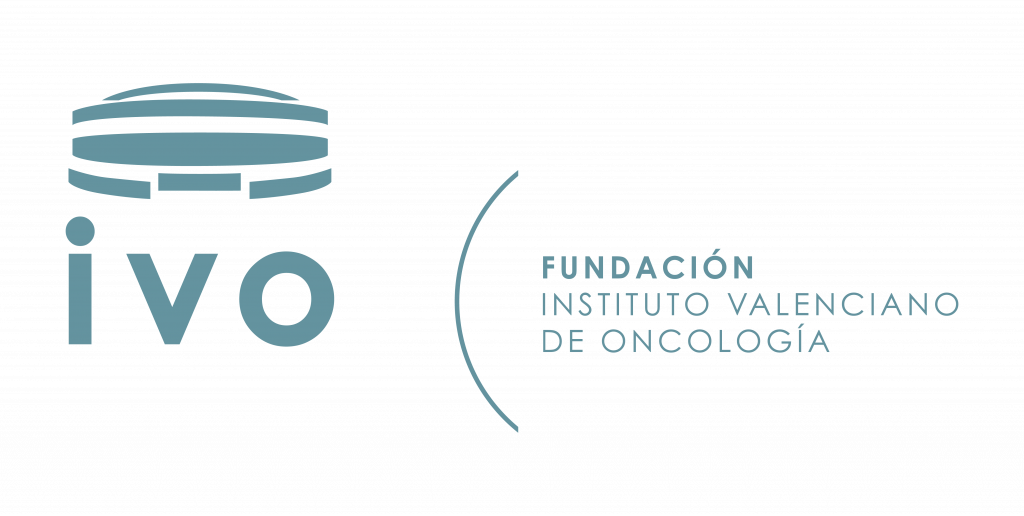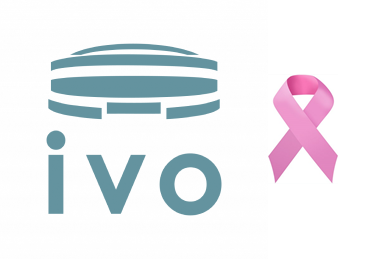The IVO Biobank is a Hospital Biobank mainly focused on oncological pathology.
It aims to collect, store and distribute quality biological samples from oncological patients so that they can be used in biomedical research, thus enhancing the research carried out by the Institution’s different healthcare services, both internally and externally, and on a non-profit basis, through collaboration with other research groups.
The IVO Biobank has all the latest-generation equipment and facilities to provide service and technical support to researchers in terms of sample storage, clinical trials, sample processing, cell culture, technical advice, etc.
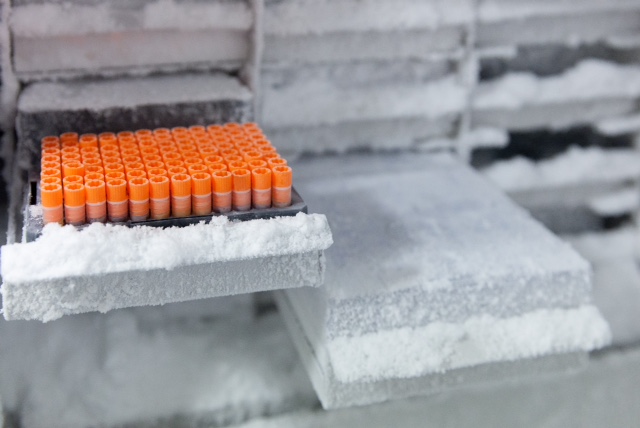
The Biobank currently has more than 200,000 biological samples associated with clinical information, which have been stored since 1998.
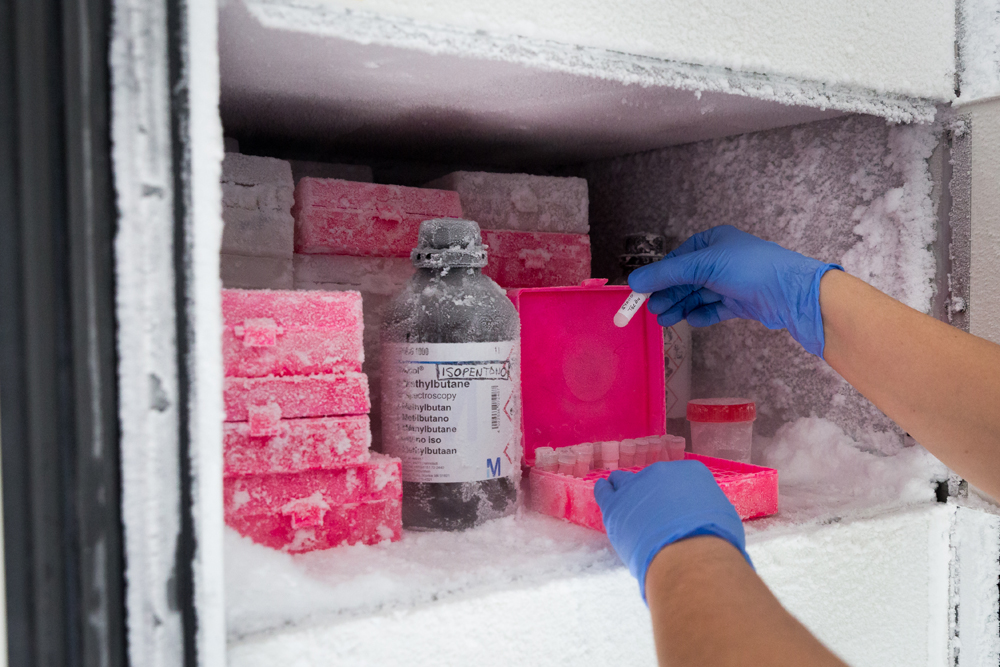
Most of the biological samples come from surplus diagnostic or therapeutic processes. The types of samples stored are as follows: frozen tissue (normal and tumour), paraffin-embedded and fixed tissue (normal, tumour, pre-neoplastic tissues), blood samples (serum, plasma, lymphocyte sediments), urine (liquid urine, urinary sediments), DNA and RNA. Performing under the highest quality standards is also one of the IVO Biobank’s objectives. For this reason, it participates in external quality programmes of the ISBER-IBBL (Integrated Biobank of Luxembourg) with the aim of continuously evaluating its activity.
The Biobank is managed through a process-based quality management system under the ISO 9001:2015 standard. Currently, the procedures have been adapted to the ISO 20387:2018 standard in order to achieve accreditation for the Biobank’s activity and to guarantee technical training and commitment to quality for researchers.
The IVO Biobank is authorised by the Generalitat Valenciana and registered in the National Register of Biobanks (Registration No.: B.0000773). Until 2020, the IVO was part of the National Platform of Biobanks for Biomedical Research Support, with funding from the Carlos III Institute of Health (ISCIII) since 2009, and we are currently part of the Platform of Biobanks and Biomodels as collaborators. We also belong to the Valencian Biobanks Network (RVB).
Since 2020 the IVO biobank participates annually in external quality programs of different international and national entities:
– IBBL Biospecimen Proficiency Testing Programme of the Integrated Biobank of Luxenbourg (IBBL) and the International Society of Biopreservation and Biobanking (ISBER).
– PROFICIENCY TEST to evaluate the processing and shipping of blood samples in biobank. BBMRI- ERIC, German Biobank Node. Integrated Biobank Jena.
– Quality control program for DNA and RNA samples of the National DNA Bank.
The programs in which it participates are:
DNA integrity, RNA integrity, DNA & RNA extraction from Whole Blood and from Frozen Tissue, DNA y RNA Quantification & Purity, alicuotado y obtención de plasma.

Mission, Vision and Values of the Biobank
Mission
To manage collections of high-quality biological samples and information associated with them
Vision
To add value to the collections it contains, facilitating access to associated information
Values
It is based on four core values: Honesty, Credibility, Professionalism and Quality
Biobank managers and technicians
- Head of the Biobank: Manuel Llombart Fuertes.
- Scientific Director: José Antonio López Guerrero
- Head of the Pathology Department: Ana Calatrava Fons.
- Technical Coordinator: Isabel Cortell Granero.
- Biobank Technician: Patricia Carretero Hinojosa.
- Documentary Technician: Nuria López Pérez-Madero.
- Head of molecular Biology Laboratory: José Antonio López Guerrero
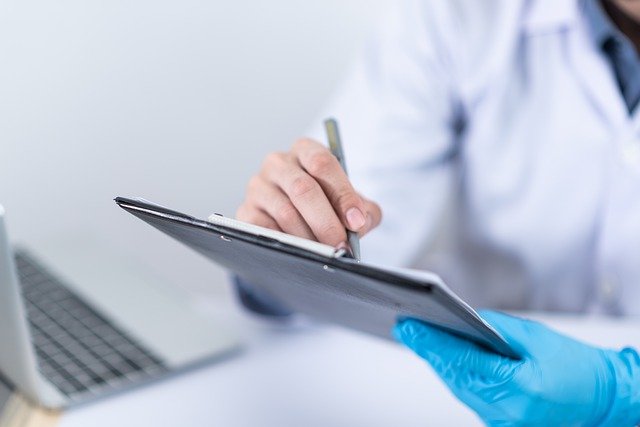
More info
See list of publications by users mentioning the Biobank
The IVO Biobank is committed to:
1. Commitment to comply with all the requirements, both those established by the
reference standard (ISO 20387) and all legal and contractual requirements that are
applicable to our activity.
2. Commitment to carry out our work in an environment that ensures the continuous
improvement of our processes, operating methods and relationships with
stakeholders, by establishing quality objectives.
3.Commitment to promote the understanding and dissemination of our quality
policy and procedures among all staff, through training and continuous communication
with our employees, so that these policies and procedures are implemented at all times.
4.Commitment to effectively control all our activities and processes, emphasizing:
• the impartiality of our activity
• competence
• the quality of our methods and results.
• good professional practices of all our staff.
5.Commitment to make our quality policy available and public to interested
parties, for their knowledge.
6. Commitment to meeting the needs and requirements of users.
The IVO Biobank has published its catalog of samples in the BBMRI and RVB directories.
Catalog in BBMRI-ERIC: BBMRI-ERIC Directory
Catalog in RVB: atenea.fisabio.san.gva.es/redcap/surveys/?s=XT3DEPHNLKNMJYYA
The IVO Biobank collaborates with the following entities
Processes and sample requests
An application form must be completed in order to request biological samples.
On the basis of this application, the Scientific Director will assess whether the Biobank has the requested samples and will draw up a Sample Availability Report, which will be sent together with the sample application form to the IVO Foundation’s CEIC and the scientific committee of the Valencian Biobank Network (RVB) for evaluation. Both committees are the bodies in charge of assessing the suitability of the request from an ethical and scientific standpoint and will either grant or withhold their approval for the transfer of the samples to the research project in a way that guarantees the rights of the donors and the destination of the samples to scientifically validated projects.
